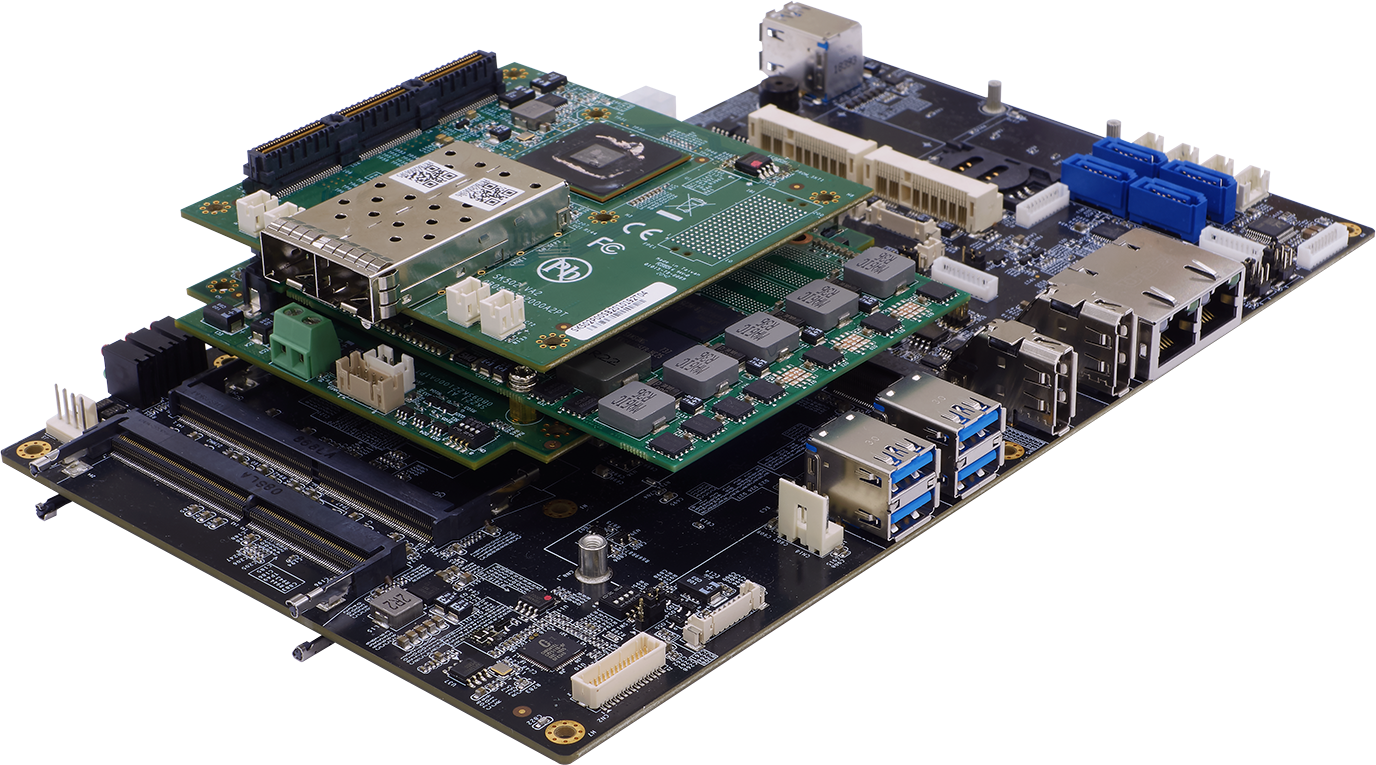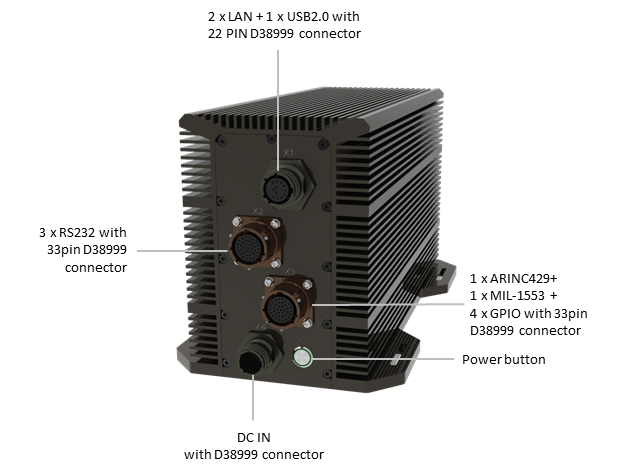Technical Profile
- Introduction
7Starlake excels in designing unparalleled military computers for harsh environments. From polar regions to the desert, from jungle environments to high altitude, 7Starlake’s rugged computers have the capability to withstand the operational environment. Comply to MIL-STD standards exacting levels of conformity, 7Starlake products can operate at full capacity in extreme conditions. 7Starlake believes in meeting 100% of our customers’ expectations for the design, quality of build, and customer service levels in the supply of rugged and custom-built computer systems.

- ARINC 429
- ARINC 429 is the worldwide standard for data transmission in aircraft electronics. It is adopted mostly for commercial aircraft and transport aircraft network protocol standard. Communications, guidance, altitude, altitude reference, flight management, and more are all needed to work together to accomplish a successful flight. The physical connection wires are twisted pairs carrying balanced differential signaling.

- MIL-STD-1553
MIL STD 1553 is US Military Department of Defence standard that was initially published in 1973.
MIL STD 1553 is a differential serial bus. Also, it is a dual redundant data bus. Each node is connected to each of the redundant buses. Secondly, if one should fail, communications can still continue.
There are three types of operating nodes for 1553 Bus:
•A Bus Controller initiates all messages, traffic and commands the remote terminals to transmit/receive data.
•Remote Terminal interfaces the 1553 Bus and Sub System Bridge to other 1553 Buses. It responds to the bus controller.
•The Bus Monitor listens to messages and records them.
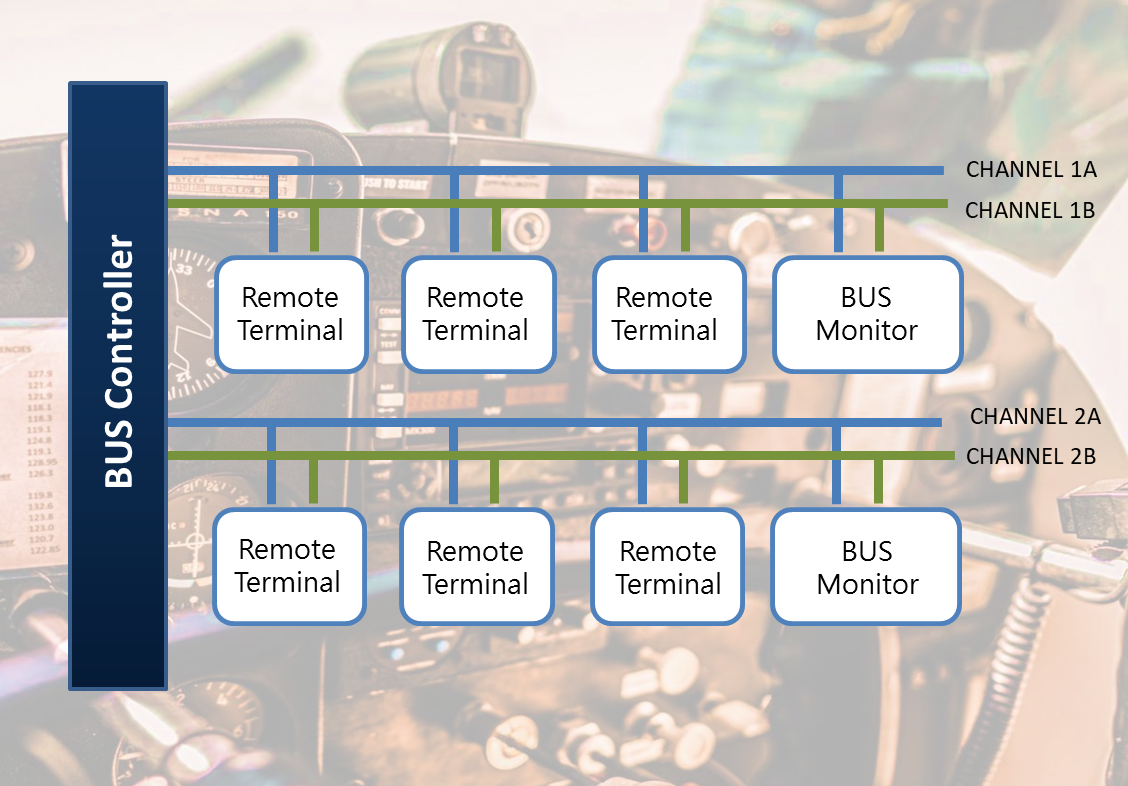
- IT Block Diagram
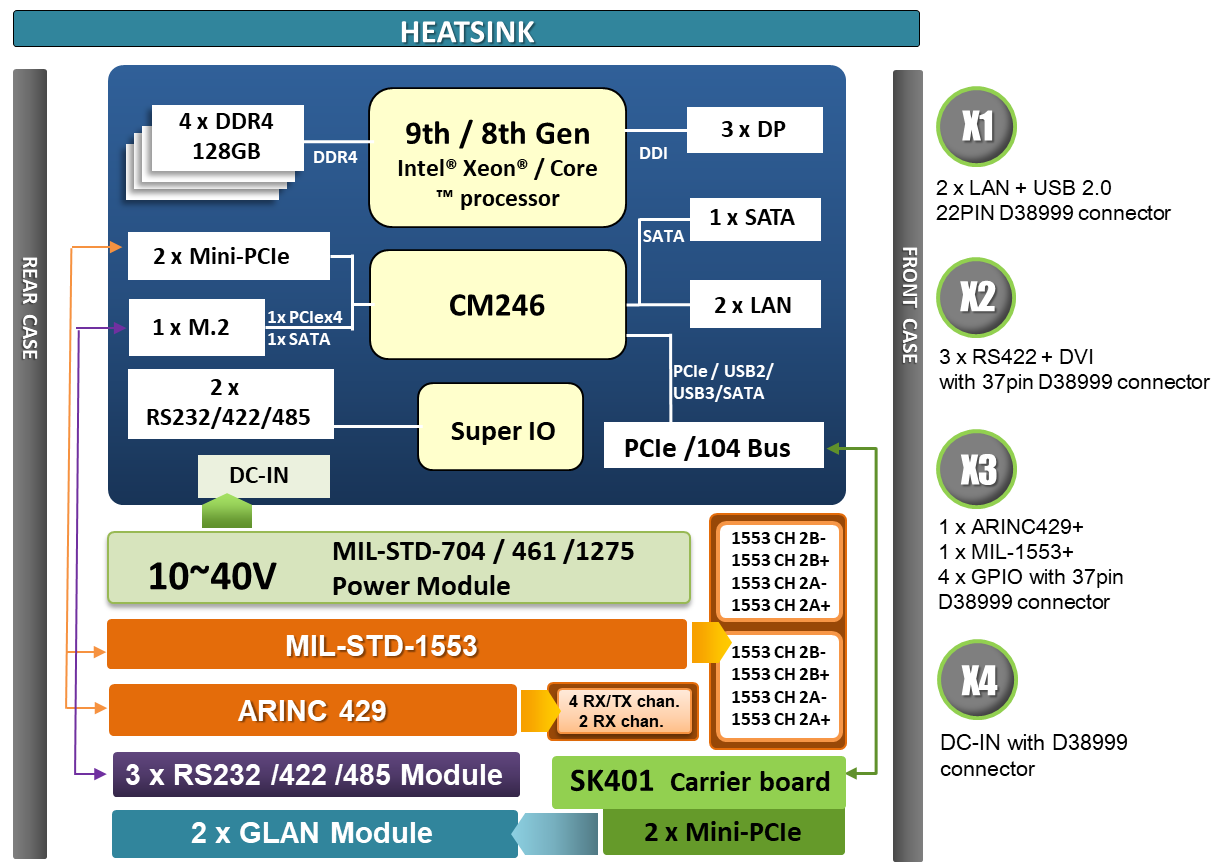
- MIL-STD-810 & Full IP65 protection
F20 is designed to meet strict SWaP requirements and to withstand harsh environments, including extreme temperature, shock/vibration, sand/dust, and salt/fog. With ruggedized design and high functionality, the IP65 and MIL-STD resistance F20 is the ideal tactical vehicle on the battlefield.

- System main board : EBX SBC-OXY5741A
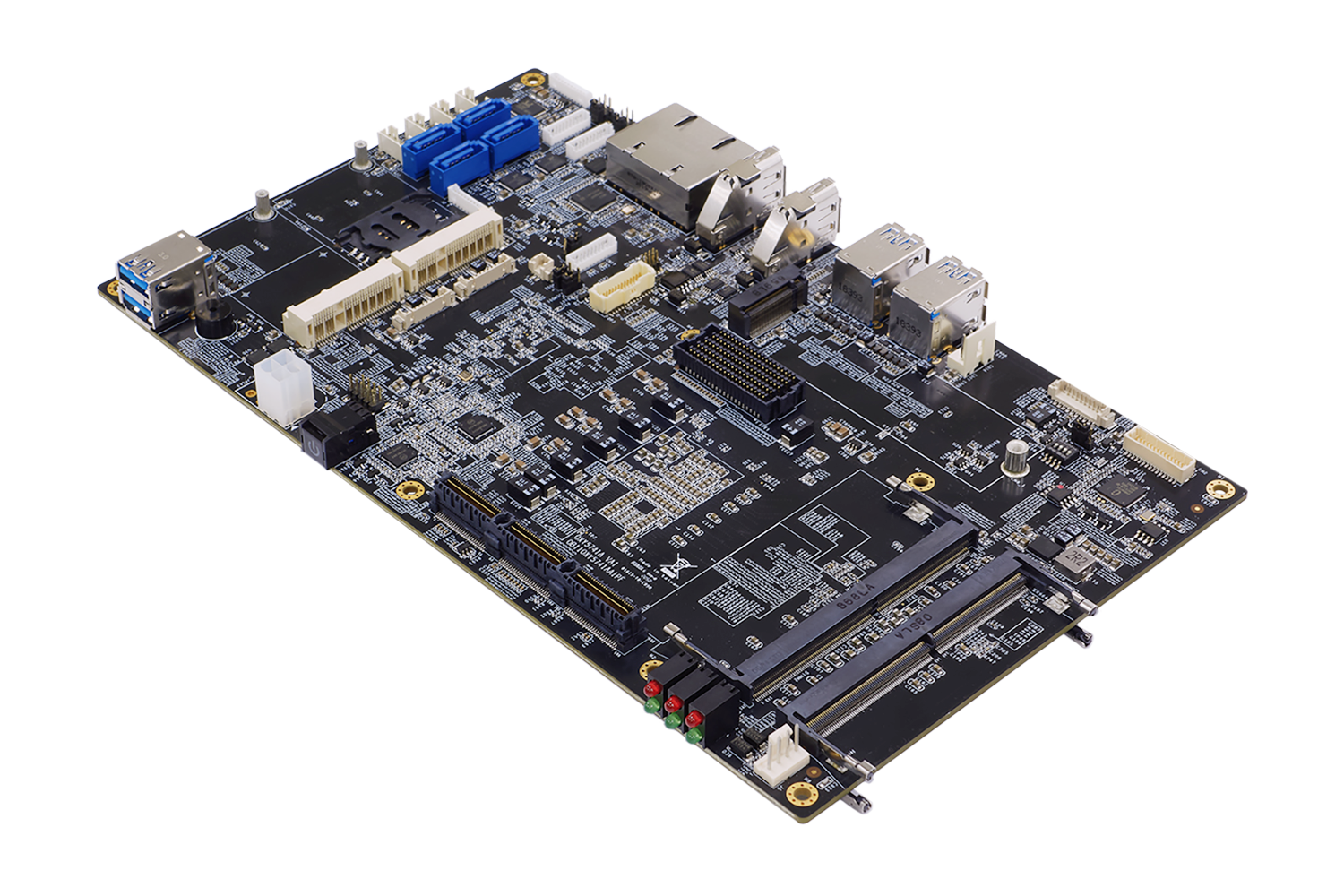
The EBX SBC OXY5741A provides extraordinary computing performance under extreme environment. It is powered by 9th / 8th Gen Intel® Xeon® / Core ™. Featuring Intel’s Xeon E-2276ME and ruggedized open-standard EBX architecture, PERFECTRON EBX series is built tentatively and triumphs on environmental testing. It still operates effectively under harsh environments ranging from -40 to 85°C so that it is a perfect solution for defence, transportation, and automation applications. More key functions such as stackable PCIe/104 expansion ability, flexible I/O, and NVMe Gen 3.0 PCIex4 for fast and large capacity storage, all contribute to this versatile architecture that can meet clients’ needs.
Choosing an embedded architecture for computer systems can be a formidable task. This kind of stackable and mezzanine architecture often results in tradeoffs that include off-the-shelf or custom design requirements. PCIe/104 compact, ruggedized, easily expandable traits support a lot of expansion flexibility in systems. This architecture evolved to address these resulting issues by keeping the common background while eliminating limitations. OXY5741 employs PCIe/104 technology to reduce constraints and create flexibility of expansion. Its M.2 extension offers M-key (M-Key 2280 optional), and PCIe 3.0 x 4 NVMe. Additionally, OXY5741 provides 3.0 ports for data redundancy by supporting RAID 0/1.
